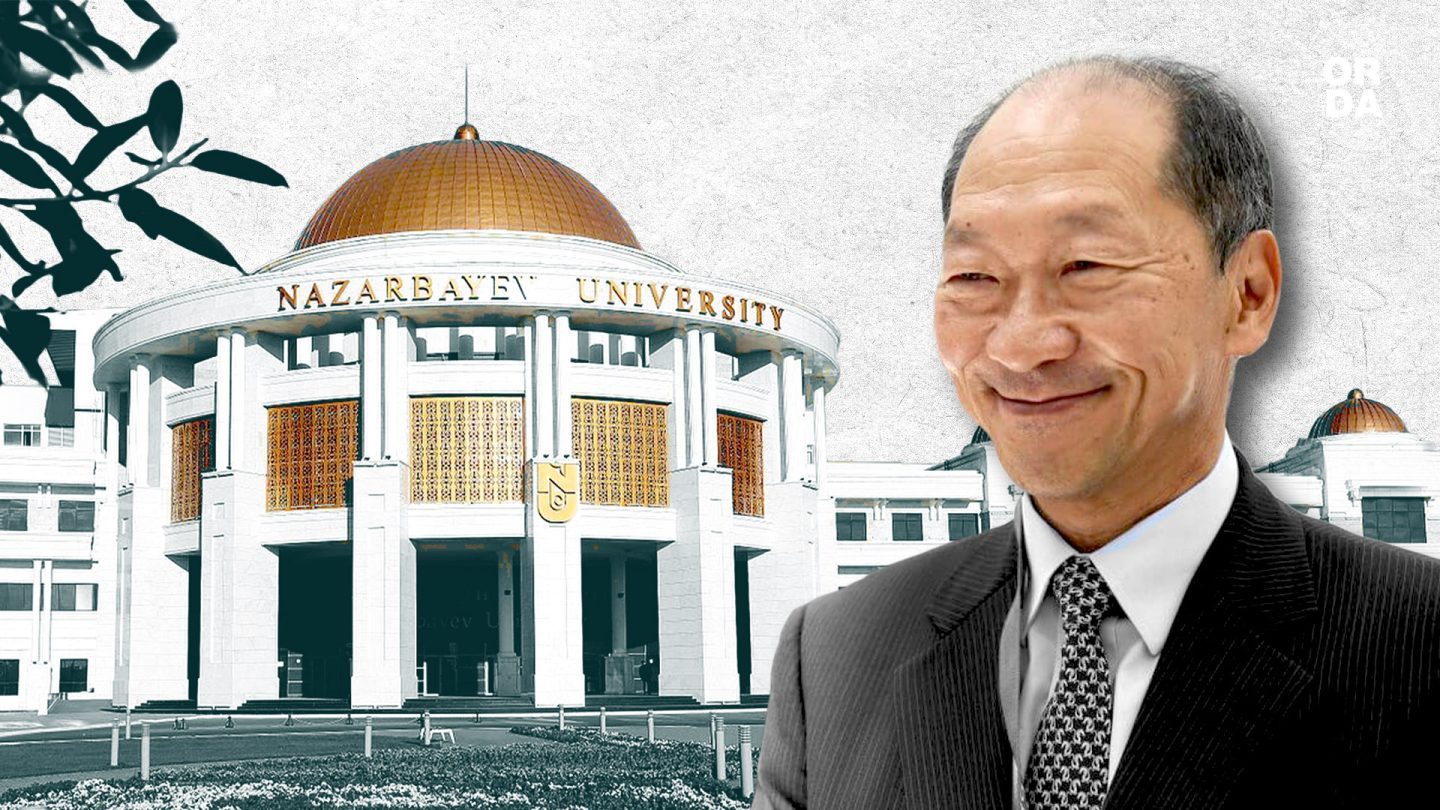Jusan’s Iliad Comes to an End, The Odyssey Begins
 Orda.kz
Orda.kz
On June 13, the Ministry of Justice of the Republic of Kazakhstan triumphantly announced that the process for returning Jusan Group’s assets to the Kazakh jurisdiction has been completed. Their further control will be handled by the Government of the Republic of Kazakhstan along with other state structures. Orda's Editorial Office has attempted to piece back together the story behind the return of assets worth $1.5 billion.
The Rise of the Dragon
The protracted transit of power in Kazakhstan began with the appointment of Karim Massimov to the post of chairman of the National Security Committee (KNB). It was he who was entrusted to look after all the acting officials and act as an arbitrator in confrontations between clans.
Bloody January, which became Old Kazakhstan’s final chord, was preceded by a long preparation – the accumulation of resources, primarily financial. The new chapter of the banking sector's redistribution began in 2018, when, at Daniyar Akishev's recommendation, the National Bank’s chairman, Nursultan Nazarbayev "sentenced" several banks at once with the strength of his word: Klebanov's Eximbank, Qazaq Banki headed by Bakytzhan Sagintayev's son-in-law and Astana Bank, in which, by some chance, money intended for the Astana LRT’s construction got stranded. All these banks experienced serious difficulties related to the return of funds issued for lending to connected persons and affiliated companies.
Shareholders’ problems were thereby solved, while losses were written off to quasi-state companies that held deposits there, and to the Kazakhstan Deposit Guarantee Fund responsible for reimbursing funds to regular depositors.
During the liquidation of banks, the second largest at that time, Tsesnabank, suddenly began experiencing issues. Massimov's people, which included ex-Vice Minister, Yerbol Orynbayev, ex-Minister of Education, Aslan Sarinzhipov, who is a cousin of Daniyar Akishev, and President of Nazarbayev University, Shigeo Katsu, began to create an international financial conglomerate, later called Jusan.
We have described in detail the scheme for Tsesnbank and ATFBank’s purchasing that involved a colossal amount of state aid, later directed towards paying dividends to new shareholders. Orda’s sources, who are well acquainted with the course of the battle between the new government and Massimov's team for control of the Jusan empire, emphasize two important details.
Firstly, the purpose of creating Jusan Bank from the very beginning was to withdraw capital from the country: Massimov never harbored illusions about his prospects in "post-Nazarbayev" Kazakhstan.
Secondly, Nursultan Nazarbayev himself was not aware of Massimov's plans. The merging of the bank with the university bearing his name was a good screen that the ex-president did not want to look behind to see what it was concealing. And Massimov was the one withdrawing money "from underneath Nazarbayev" and on his behalf.
According to Orda’s source, it is very simple to verify this. At least one of his relatives worked in the structures that Nazarbayev actually controlled and reported to him about the progress of work directly, without intermediaries.
Dariga Nursultanovna, for instance, supervised the Nursultan Nazarbayev Foundation (not to be confused with the "Nazarbayev Foundation”). Jusan Bank's and Nazarbayev University’s structures do not fall under this category – none of the ex-president’s direct relatives has anything to do with them, and all the managers, without exception, were under Karim Massimov's personal control.
A Rebellious Samurai
Massimov's only problem was Shigeo Katsu’s exorbitant ambitions. Our source says that in 2021, he demanded Massimov to cut him in on the Jusan structure, justifying his reasoning with his ten years as Nazarbayev University’s president and deep involvement in Tsesnabank’s development.
Massimov promised him that he would solve this issue, and most likely he would have succeeded, but January 2022 came. Jusan remained the only bank whose branches were not affected during Qantar (January in Kazakh - Ed.). Massimov and his closest associates from the KNB received hefty sentences, while the "banking" team lost their will to win and laid low or went abroad.
According to our source, Mr. Katsu, having lost political patronage, not unreasonably felt cheated and decided that now it was his time to take matters into his own hands.
Our source is familiar with the letter about the "share adjustment" that Katsu sent to another shareholder of Jusan Bank, Galimzhan Yesenov, in the spring of 2022. Katsu openly demanded that Yesenov personally give him part of his share.
Yesenov, deprived of any rights to manage his stake back in 2020, in a reply letter colorfully described the process of Orynbayev's group seizing assets from him and threatened Katsu with arbitration in London if he did not take things down a notch. The "Japanese emperor," as Akezhan Kazhegeldin calls him, decided not to go about taking further action.
Yesenov's Boomerang
Yesenov's idea of the London arbitration did not remain hanging on the wall for long as a “Chekhov’s gun”. Indeed, at that moment a campaign was launched to return assets withdrawn from the country. Orda’s source claims that an unnamed person directly reporting to the president knew about the difficulties of the relationship between Yesenov and Katsu and almost immediately offered to use the unenviable position of the former to return assets.
The main weapon of Massimov's people was turned against them: Yesenov was asked to file a lawsuit in London arbitration, but with the stakes raised – the return of Jusan Bank’s assets to Kazakhstan. The arbitration would presumably side with Yesenov as the party affected by raiders. This was described in detail in the lawsuit.
It is worth paying tribute to the team in Nevada, to which assets were transferred under the banner of the New Generation Foundation. These people became defendants in Yesenov's lawsuit and immediately realized where the wind was blowing. They offered to settle the conflict without hesitation.
The negotiation process began, which, in accordance with generally accepted practice, was conducted in the strictest secrecy. Our source reports that only a small group of members from the government and the ARDFM knew about it.
Initiative Prosecutor's Office
The negotiations would have gone faster if Shigeo Katsu hadn't found out about them. Our source claims that the message about the possible return of asset management of Jusan to Kazakhstan infuriated him. He began to send American shareholders messages that they should not return assets to Kazakhstan. It got to the point that Katsu was removed from the New Generation Foundation’s board of directors.

Our source, however, said that it was at his recommendation in January 2023 that Aslan Sarinzhipov made a completely ridiculous statement about the attempt to seize Jusan by "people from Old Kazakhstan". Such wording in Mr. Katsu’s world illustrated the desire of American beneficiaries to keep the dispute in the legal field and return assets to Kazakhstan.
It worked. Dust was kicked up, and the Prosecutor General's Office, not aware of the negotiations, had to react. Prosecutors filed a lawsuit in the Bostandyk district Court, which received a lightning-quick response - a lawsuit in the Nevada state court.
According to our source, the American side, which actually assisted in the return of assets, expressed bewilderment at the actions of the prosecutor's office and therefore decided to cover their bases. They were eventually persuaded that if they agreed to a settlement, all claims against them would be withdrawn.
Old-new Denomination
Our source claims that the settlement agreement is drawn up in such a way that all assets will be temporarily reissued to Galimzhan Yesenov – it's easier and faster to return them to Kazakhstan, as he is the current shareholder. Albeit “one with his hands tied."
He will not own 100% of the assets – the actual control over them will be in the hands of the government and the ARDFM, which will have to find an investor. This is no easy task, to put it mildly. Indeed, although the investor will get a promising asset, there will be negativity and obligations to return state aid and to finance Nazarbayev University and NISs.
As such, the government does not need Jusan. The return of the public money spent in the process of its creation takes precedence. Without Yesenov's participation, it would have been possible to receive charges on state raiding and forget about an investor, whose rights could be challenged by the former shareholders who are on the sidelines.
Against the background of the return of assets totalling over $1.5 billion and the switching of shareholders, Jusan is waiting for changes, at least in management. The chairman of Jusan Bank’s Board of Directors, Shigeo Katsu, is the only one remaining from Massimov’s clan. But this is not for long.
Original Author: Orda
DISCLAIMER: This is a translated piece. The text has been modified, the content is the same. Please refer to the original piece in Russian for accuracy.
Latest news
- President Toqayev Sends Nazarbayev Birthday Wishes
- Toqayev Appoints New Ambassadors in Series of Diplomatic Changes
- Unidentified Object Resembling Drone Found in Atyrau Region
- Trump and Zelenskyy Discuss Air Defense Needs
- Rapper Qurt: Wife Withdraws Statement in Court
- Head of Azerbaijani Cultural Autonomy in Moscow Region Reportedly Loses Russian Citizenship
- Defense Secretary Hegseth Paused Ukraine Weapons Shipment Despite Pentagon Assessment — NBC
- Prosecutor General's Office Confirms Detention of Kozhamzharov's Associate in Torture Case
- State to Scale Back Role in Competitive Sectors
- Uzbek Banker Kidnapped in Paris
- Former Financial Police Officials Reportedly Detained, Case Concerns Torture
- Progress MS-31 Launches from Baikonur Carrying Fuel, Water, and Scientific Cargo
- Two Men to Face Trial for Homicide of Missing Atyrau Woman, Body Not Found
- Russia Launched Massive Strike on Ukraine Following Trump–Putin Call
- Rapper Qurt Accused of Abuse by Wife
- Pavlodar Region: Rescuers Seek Lower Retirement Age Amid Strain of Risky Work
- Businessman Vagif Suleymanov Detained in Moscow
- Kashagan Field Reaches One Billion Barrels of Oil Extracted
- Lenin Street in Osh Renamed After 19th-Century Kyrgyz Leader
- New Uranium Plant Launched in Turkistan Region with French Partnership

